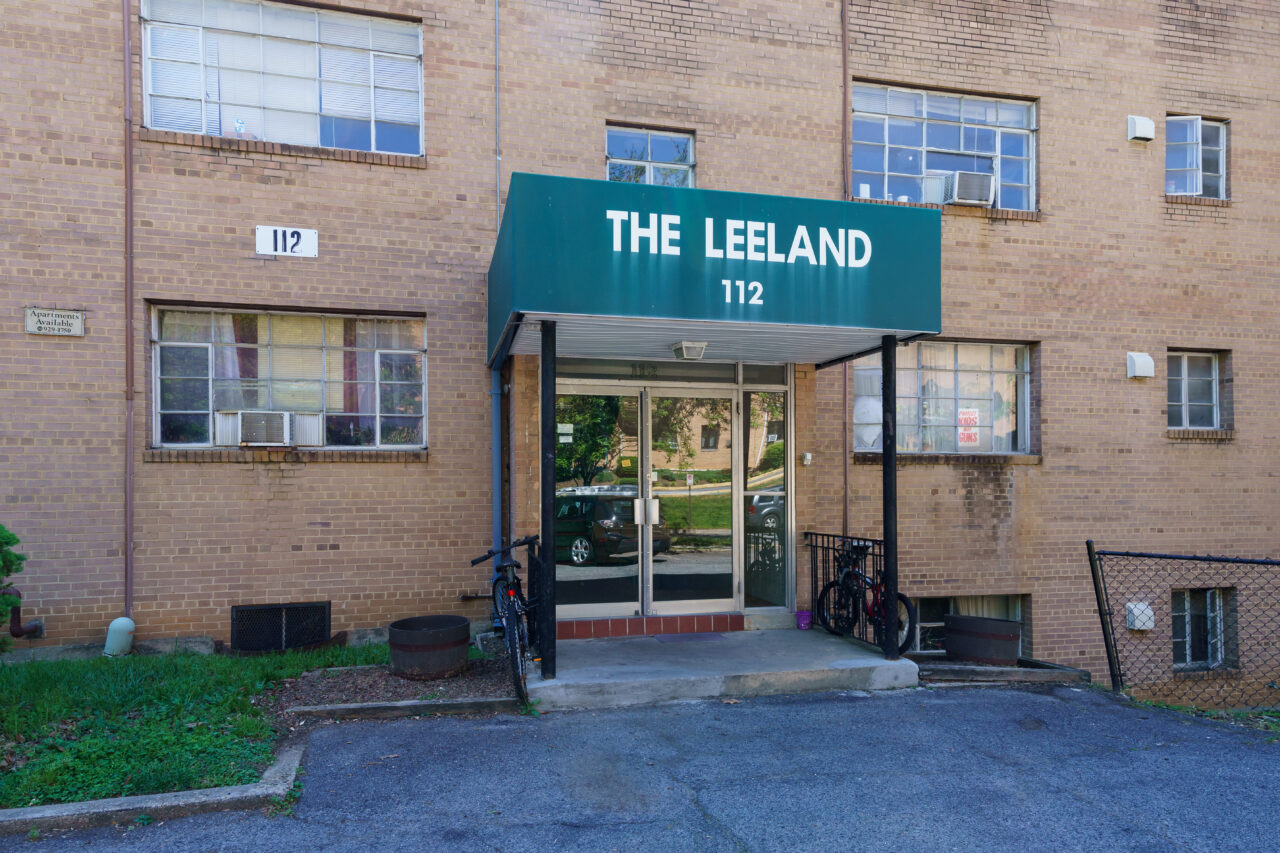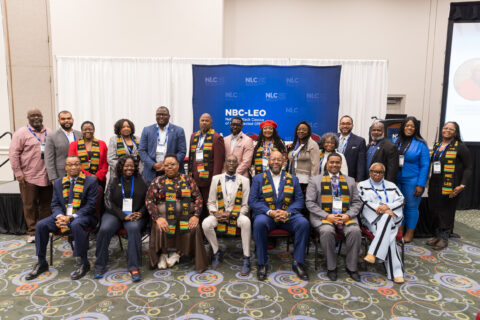Co-authored by Vonnette Harris, Economic Recovery Corps Fellow, President and CEO, Kairos Development and Laura Searfoss, Associate Director, Mid-Atlantic Market, Enterprise Community Partners
Maryland’s Montgomery and Prince George’s counties share deep ties, with residents regularly crossing county lines to shop, dine and work. A new light rail, the Purple Line, will strengthen these bonds, linking these two counties more directly than ever before. More than a transportation investment, the Purple Line represents a reimagining of how these communities connect, collaborate, and grow together.
As a continuation of the Entrepreneurship and Economic Development team’s blog, “Development Without Displacement: Safeguarding Municipalities Near Transit Projects,” we take a deeper look into the pivotal work being led by Enterprise Community Partners as a leader in the Purple Line Corridor Coalition (PLCC) and by Economic Recovery Corps Fellow Vonnette Harris and Host Laura Searfoss.
Together, they are championing a community-first approach: one that places housing affordability and anti-displacement strategies at the forefront. This ensures that as the counties grow closer, their unique identities and long-term residents remain firmly rooted.
PLCC leads this approach through continued no-cost technical assistance to developers, housing providers and community-based organizations interested in contributing to the coalition’s goal of preserving 17,000 affordable housing units along the purple line corridor. This blog aims to encapsulate some of their most promising work from empowering tenant associations in understanding their right to purchase to guiding responsible investment practices through due diligence support.
Tenant First Housing Preservation
The Leeland, a 15-unit small apartment building in Takoma Park, MD, became a trailblazer in tenant-led housing preservation by successfully leveraging an often-overlooked policy: Tenant Opportunity Purchase Law (TOPL). This legislation grants tenants the first right to purchase their building when a landlord decides to sell, offering a critical pathway to housing stability and affordability.
Despite facing significant challenges, the Leeland Tenant Association (LTA) worked diligently to secure financing in accordance with TOPL, which grants tenants the right to match a competing offer of a bona fide purchaser within a designated time period. With The Leeland being a highly sought-after property, the LTA found itself competing against a larger developer who planned to convert the units to condominiums, a move that would have displaced current residents, sidestepped Takoma Park’s Rent Stabilization laws and dramatically reduced affordability in the neighborhood.
Instead of accepting displacement as inevitable, the LTA took action. Backed by strong community, political support and guidance from Vonnette Harris and other organizations, the association became the first in Montgomery County to use the local Affordable Housing Opportunity Fund (AHOF), a financing tool designed to preserve long-term affordability for existing tenants. Additional grant support from the City of Takoma Park via the Maryland Department of Housing and Community Development played a pivotal role in the success of the purchase alongside contributions from multiple funding sources.
Vonnette’s leadership and advocacy didn’t stop at acquisition. In her current role, she continues to champion The Leeland and support its residents, helping turn this pioneering model of tenant-led preservation into a replicable framework across the county.

Safeguarding Affordable Housing
Nestled near one of the future Purple Line stops, East Pine Terrace is a 74-unit apartment complex located at the intersection of several major thoroughfares in Prince George’s County. When light rail construction plans revealed that rail development would require less than 8,000 square feet at the front of their property, Delwin Realty saw an opportunity to expand thoughtfully with one non-negotiable: no residents would be displaced.
With a vision for a new mixed-use development, Delwin Realty, a family-owned business, moved forward with ambitious plans to redevelop its property. However, a structural change in the project’s scope brought the expansion to a halt. Undeterred and guided by Enterprise Community Partners and Harris, Delwin Realty doubled down on its commitment to the community by modernizing existing units, making welcome upgrades for current residents of East Pine Terrace.
That commitment did not go unnoticed: not a single tenant missed or was late on rent payments during the height of the pandemic. Although the mixed-use concept did not come to fruition, Enterprise Community Partners and Harris continue to explore alternative revenue strategies to sustain and grow East Pine Terrace as a model of resilient, affordable housing.
Historic Housing Preservation Meets Innovation
Tucked into a quiet residential street stands a 23-unit multifamily apartment building built in 1950. BIPOC-led firm, Yoke Realty Partners, is in the final stages of acquiring this property by utilizing the exception process in Prince George’s County Right of First Refusal Law. Initially created in 2013, over time and with the help of advocacy by the Purple Line Corridor Coalition, Prince George’s County Council Right of First Refusal Program has become a model for the region and an essential tool in the housing preservation ecosystem along the Purple Line corridor.
Committed to maintaining current levels of affordability and dedicated to preserving the building’s historic façade, Yoke Realty is working with PLCC to explore innovative upgrades that enhance energy efficiency and support modern amenities without compromising the building’s original character.
Enterprise Community Partners and Harris have been instrumental in fostering a proactive, human-centered approach to housing preservation along the Purple Line corridor. Their role adapts to the unique needs across the corridor, working with tenants, existing property owners and developers alike. This approach provides an opportunity for education via technical assistance or one-on-one support that serves as a feeder to the PLCC’s larger goal of preserving 17,000 homes along the Purple Line.
Through the combined efforts of Enterprise Community Partners and the Purple Line Corridor Coalition (PLCC), their shared mission ensures that investment and infrastructure growth do not come at the cost of displacement, but instead strengthen the neighborhoods they serve.
Dig Deeper
In case you missed it, the CitiesSpeak blog, “In Development Without Displacement: Safeguarding Municipalities Near Transit Projects,” offers more on this story and details how local leaders are shaping a future where growth and equity ride together.









